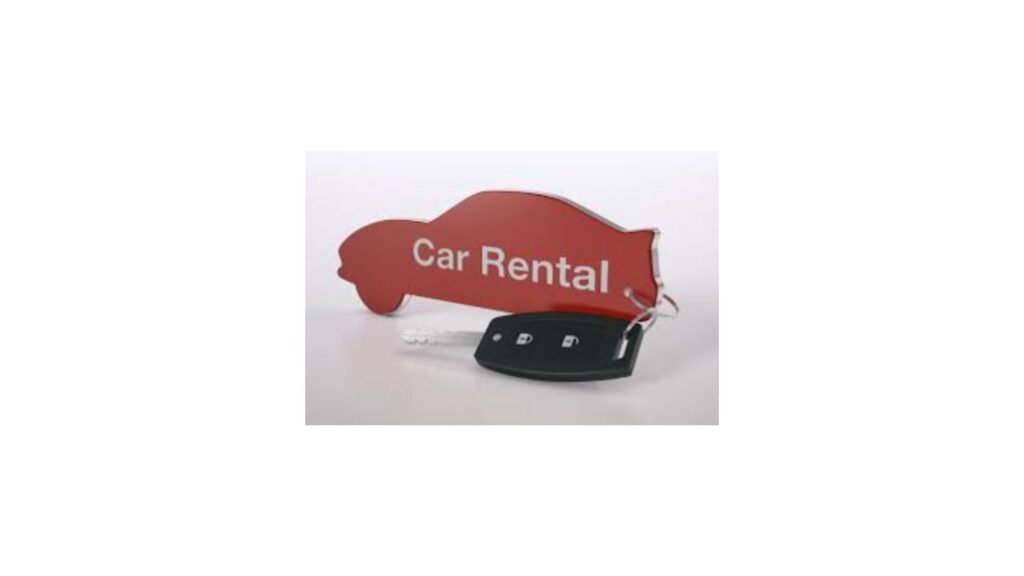- Introduction
- Planning Ahead for Savings
- Book Early
- Compare Prices Across Multiple Companies
- Consider Off-Airport Locations
- Check for Discounts and Promotions
- Understanding the Rental Agreement
- Inspect the Car Before Driving Off
- Strategies for Saving Money
- Tips for a Smooth Rental Experience
- Conclusion
- FAQ
Introduction
When embarking on a journey, transportation choices significantly influence the overall travel experience, and opting for a rental car is often a preferred option for many travelers. However, securing the best deal while renting a car can be a nuanced endeavor. With the myriad of options, offers, and fees associated with car rentals, travelers frequently find themselves overwhelmed and misinformed. Understanding the landscape of car rentals is imperative, as making knowledgeable decisions can lead to substantial savings both in time and finances.
One common misconception is that rental companies offer the best rates only at specific times or through promotional campaigns. In reality, the best deals often stem from a thorough understanding of the rental process, which includes seasonal pricing trends, local economic conditions, and even the timing of your reservation. Savvy travelers know that they must investigate beyond surface-level offers to uncover hidden fees and charges that may ultimately inflate the rental cost.
Being informed about car rental agreements, the types of vehicles available, and insurance options can empower travelers to navigate the complexities of the rental market more effectively. Additionally, recognizing the potential benefits of booking in advance, comparing various providers, and utilizing loyalty programs can further enhance the chances of obtaining favorable rates. Throughout this article, we will explore essential tips and strategies that can aid travelers in finding the most advantageous car rental deals, ensuring a smoother travel experience. From understanding the nuances of insurance to utilizing available discounts efficiently, our guide aims to equip readers with the insights needed to make informed decisions in their car rental pursuits.
Planning Ahead for Savings
When it comes to car rentals, careful planning can yield substantial savings and improve the overall travel experience. Booking your rental car well in advance is an effective way to access lower prices and secure the desired vehicle. Car rental companies typically offer competitive rates to customers who reserve their cars early, as this helps to ensure better inventory management and price predictability. As a general rule, reserving a vehicle at least two to three weeks prior to travel can lead to significant savings compared to last-minute bookings.
Another essential strategy is setting reminders for key deadlines associated with your travel plans. By marking down the date you intend to book your car rental and any specific promotions that may be running, you can take advantage of current deals and avoid missing deadlines for special offers. Additionally, keeping track of the cancellation policies of the rental companies can provide peace of mind; many organizations allow you to adjust bookings without penalties if changes arise. This flexibility is beneficial when planning a trip, as it allows you to modify your plans if necessary.
Travelers should also be mindful of seasonal pricing patterns in the car rental market. Prices often fluctuate based on demand; for instance, during peak travel seasons, rental rates can skyrocket due to increased demand. Understanding these trends can assist you in making strategic decisions about when to travel. Opting for rental periods during off-peak times, such as mid-weeks or non-holiday periods, can result in significant savings. By being proactive in your approach to rental car planning, the chances of obtaining the best deals increase markedly, creating a more cost-effective travel experience.
Book Early
When it comes to securing the best deals on car rentals, booking early is a strategy that can significantly impact pricing and availability. Research indicates that rental car prices tend to rise as the rental date approaches. This trend is particularly noticeable during peak travel seasons when demand exceeds supply, leading to inflated prices. By making a reservation well in advance, travelers can often lock in lower rates and enjoy a broader selection of vehicle options.
One effective approach to early booking is to set reminders for yourself to check rental rates periodically. Many travel apps and websites allow users to track prices and receive notifications when they drop, making it easier to secure a deal that fits the budget. Additionally, certain rental agencies may offer special discounts or promotional rates for those who book their vehicles weeks or even months ahead of time. These early bird offers can result in significant savings compared to last-minute reservations, particularly for desired vehicle classes or during busy periods.
There is a convenience aspect associated with early bookings as well. Planning your rental car ahead of time gives peace of mind, allowing you to focus on other elements of your trip without the last-minute stress of finding transportation upon arrival. Furthermore, by booking in advance, travelers can often enjoy more flexible cancellation policies, which can provide added security should plans need to change unexpectedly.
In summary, taking the initiative to book a rental car early can lead to financial savings and greater convenience for travelers. By utilizing technology to track prices and taking advantage of promotional offers, individuals can enhance their travel experience while ensuring they secure reliable transportation at a favorable rate.

Compare Prices Across Multiple Companies
When seeking the best deal on car rental services, it is imperative to compare prices across various companies. Given the wide array of options available, systematic evaluation can help travelers secure competitive rates without sacrificing quality. A good first step is to utilize reliable online car rental aggregators. Websites such as Kayak, Expedia, and Rentalcars.com allow users to filter results based on various parameters, including price, car type, and rental companies. These platforms often feature special deals and discounts that may not be visible on rental companies’ individual websites.
In addition to online resources, it is beneficial to check local car rental agency websites. Sometimes companies offer exclusive promotions or unlisted rates that can result in significant savings for customers. Contacting companies directly via phone or in person can also yield advantageous results, particularly if travelers are flexible regarding their pick-up locations or can negotiate terms directly with customer service representatives.
For frequent travelers, participating in loyalty rewards programs can enhance the savings potential even further. Many car rental companies offer reward schemes that provide discounts, upgrades, and bonus points for future rentals. Utilizing these programs while comparing prices may yield a lower overall cost, especially for those who frequently use a specific rental agency. When selecting a car rental, it is important to consider not only the base price but also the additional benefits outlined in loyalty programs, particularly if free upgrades or insurance coverage may be included.
Ultimately, thorough price comparison across multiple channels—both online and offline—is essential for finding the optimal car rental deal. By strategically evaluating different options and leveraging loyalty rewards, travelers can maximize their savings while ensuring a seamless rental experience.
Consider Off-Airport Locations
When planning a trip, one of the most significant choices travelers face is where to rent a car. While many people instinctively opt for car rental facilities at major airports, exploring off-airport locations can often yield considerable cost savings and unique advantages. Off-airport rentals can provide significantly lower rates compared to their airport counterparts. This reduction is typically attributed to the absence of additional airport fees that are frequently passed onto customers, making local car rental services a more economical choice.
Additionally, renting from off-airport locations can frequently lead to enhanced customer service experiences. Local rental agencies may not be inundated with the same high volume of customers that airport-based facilities experience, allowing for more personalized attention. This can translate into shorter wait times and a greater willingness to accommodate specific requests or last-minute changes, enhancing the overall rental experience.
Transportation to and from off-airport rental locations is another critical factor to consider. Many off-airport car rental agencies provide shuttle services to and from major airports, further mitigating any inconvenience of renting outside the airport. These shuttles typically run at regular intervals, making it easy for travelers to access their vehicles promptly after arrival. Additionally, public transport and rideshare options often serve these off-airport locations, offering further flexibility for your travel arrangements.
To pinpoint nearby off-airport car rental facilities, several resources can be utilized. Popular travel websites and apps allow users to input their destination to discover a range of rental options beyond the airport itself. Searching for reviews of local agencies can offer insights into which companies provide exceptional service and competitive rates. By taking the time to explore these alternatives, travelers can optimize their car rental experience and make informed decisions that fit their budget and journey.
Check for Discounts and Promotions
When planning to rent a car while traveling, it is essential to explore various discounts and promotions that can significantly lower rental costs. Many rental car companies offer special rates for corporate clients, allowing employees of registered organizations to benefit from discounted fees. If you work for a company that frequently rents vehicles, check with your employer to see if they have an agreement with a specific rental agency that could save you money.
Another valuable resource for discounts is AAA membership. AAA frequently partners with car rental companies to provide exclusive discounts to its members. This savings can be particularly useful when making reservations, as members can often enjoy substantial reductions in price. If you are already a member or considering joining, be sure to take advantage of these benefits during your next car rental booking.
Additionally, many credit cards come with perks that include discounts on car rentals. Some cards offer promotional deals or insurance benefits when you use the card to pay for your vehicle rental. Always check the terms and conditions associated with your credit card, as some may have high-value partnerships with specific rental companies, enabling you to access further discounts. Promotions may also be seasonal or tied to events, so staying informed about current offers is crucial.
To maximize your savings, conduct thorough research before finalizing your car rental. Utilize comparison websites to evaluate prices across multiple agencies while being mindful of ongoing promotions. By tapping into available discounts, you can make your travel experience both convenient and budget-friendly. Remember to enter any applicable membership numbers during the booking process, ensuring that you do not miss out on additional savings opportunities.
Understanding the Rental Agreement
The rental agreement is a vital document for anyone considering renting a car. It lays out the terms and conditions that govern the rental transaction, making it essential for renters to familiarize themselves with its contents. A thorough comprehension of the rental agreement helps mitigate misunderstandings and unexpected charges at the conclusion of a rental period.
One of the crucial elements to examine is the fee structure outlined in the agreement. This includes base rental rates as well as additional charges that may apply, such as airport surcharges, late return fees, or extra mileage fees. Renters should carefully review these aspects to ascertain whether the rental costs align with their budget. Variances in mileage allowances and driving restrictions can also significantly affect overall expenses.
Insurance coverage is another critical component to understand thoroughly. Rental companies often offer various insurance options ranging from collision damage waivers to liability coverage. Renters should assess whether their personal auto insurance or credit card benefits cover rental cars to avoid unnecessary duplication of coverage. Furthermore, understanding the implications of opting for or declining additional coverage can save clients substantial money in the event of an accident or theft.
Fuel policies are equally important, as they dictate how renters should return the vehicle. Some agreements require a full tank upon return, while others may offer fuel purchase options. Familiarizing oneself with fuel policies helps avoid inflated refueling costs commonly charged by rental companies. Lastly, optional extras such as GPS units, car seats, or roadside assistance must also be clearly understood before committing, as these can impact the overall rental price significantly.
Renters are strongly advised to read the entire rental agreement carefully before signing. Highlighting key terms with an understanding of what each entails empowers customers to make informed decisions and enhances their overall rental experience.

Inspect the Car Before Driving Off
Before you drive off in a rental vehicle, it is crucial to conduct a thorough inspection to ensure your experience is trouble-free. Understanding how to inspect a rental car can save you considerable time, money, and hassle in the long run. Begin your evaluation by closely examining the exterior of the car for any existing damages, such as scratches, dents, or chipped paint. It is advisable to walk around the vehicle, paying attention to all angles, and to verify that any pre-existing damage is properly noted on the rental agreement.
Additionally, check the condition of the tires, ensuring they are adequately inflated and have sufficient tread depth. Inspecting the tires helps avoid potential safety issues and avoids disputes regarding tire damage upon return. Moving to the car’s interior, ensure that the upholstery is clean and free from any visible stains or unpleasant odors. It’s a good idea to test all the features that the vehicle offers; this includes the radio, air conditioning, and lights. Confirm that the seat and steering wheel adjustments function properly, as a comfortable and safe driving position is essential for a pleasant journey.
Once you have completed your inspection, take notes or document your findings with your smartphone. Many rental companies are equipped with mobile apps for easy documentation, allowing you to take photos of any damage you observe. This record will serve as essential evidence should you face disputes regarding existing damages upon returning the car. By performing a comprehensive inspection before driving off, you can safeguard yourself from the risk of being charged for pre-existing issues, ensuring that your rental experience remains positive and hassle-free.
Strategies for Saving Money
When it comes to renting a car, finding strategies for saving money can significantly affect your travel budget. One of the most effective tactics is to avoid unnecessary optional extras that rental companies often promote. Many rentals offer add-ons such as GPS systems or satellite radio. However, these features can usually be replaced with your smartphone or personal devices. Instead of paying for these add-ons, consider downloading a navigation app, which not only saves money but also provides the most updated information.
Another cost-saving strategy is to refuel the rental car before returning it. Most rental companies provide a fuel policy that either requires you to return the car with a full tank or will charge a premium rate for refueling. By filling up the tank yourself, you can avoid these inflated rates and maintain control over your travel expenses. Additionally, service stations located outside the airport are generally more affordable than those near major terminals, providing another opportunity to save.
Choosing the right car size based on your needs can also yield significant savings. Opting for a smaller vehicle, if possible, not only typically results in lower daily rental rates, but it also enhances fuel efficiency. If you are traveling solo or as a couple, a compact car may be ideal. Conversely, if you are traveling with a larger group, consider confirming whether the additional costs of a larger vehicle outweigh the benefits of convenience.
Moreover, if you plan to have multiple drivers, carefully evaluate the costs associated with adding an extra driver. Some rental agencies charge a daily fee for this service. If permissible, it may be more economical to have one primary driver manage the rental and share driving responsibilities during your trip, ensuring that your overall rental expenses remain within reason.

Tips for a Smooth Rental Experience
When planning for a car rental, ensuring a seamless experience requires careful preparation. The first step is to gather all the necessary documents. Travelers should bring a valid driver’s license, a credit card for deposit and payment, and any confirmations related to the rental reservation. Having these documents readily available will expedite the pick-up process and avoid delays.
One often overlooked aspect is the importance of documenting the car’s condition prior to driving off. Taking detailed photos of both the interior and exterior of the vehicle not only helps in safeguarding against potential disputes regarding damage but also serves as a reference if issues arise. This visual evidence can be invaluable when returning the car or dealing with insurance claims.
Awareness of local driving laws is essential to facilitate a smooth rental experience. Traffic regulations can vary significantly between different regions, and unfamiliarity can lead to fines or unsafe driving situations. Before traveling, it is advisable to research specific laws such as speed limits, seatbelt requirements, and rules pertaining to mobile device usage while driving. This preparation enhances not only compliance with the law but also the overall safety of the travel experience.
Keeping essential contact information easily accessible is another critical consideration. This includes the rental company’s phone number, roadside assistance services, and even the contact for personal insurance coverage. In the event of an emergency or unforeseen issue, having these details on hand can significantly reduce stress during the rental period.
By following these straightforward tips, travelers can greatly enhance their rental experience. A well-prepared approach ensures that all aspects of car rental, from documentation to awareness of local regulations, contribute to a hassle-free journey.
Conclusion
In summary, navigating the landscape of car rentals can initially seem daunting, particularly when seeking the best deal during your travels. However, by adhering to the strategies outlined in this article, you can significantly enhance your chances of securing a favorable rental agreement. Key takeaways include the importance of early booking, which often translates into more competitive rates and a wider selection of vehicles. Additionally, leveraging online comparison tools allows travelers to evaluate various rental companies and uncover exclusive deals that may not be available at rental counters.
Understanding the specifics of rental policies, such as insurance options and fuel requirements, is also crucial. Knowledge of these terms helps avoid unexpected costs that could inflate your budget. Furthermore, choosing the right vehicle for your trip, based on your itinerary and the number of travelers, not only maximizes comfort but also ensures cost efficiency. Keep in mind that opting for economy or compact models typically comes with lower rates and reduced fuel expenses.
Finally, be attentive to ongoing promotional offers or loyalty programs that rental companies may provide. They can lead to substantial savings and improvements in your overall experience. By implementing these practical tips and strategies, you empower yourself to make informed decisions that align with your travel preferences and financial constraints. Remember, a well-planned car rental can significantly enhance your holiday, providing the freedom to explore new destinations at your own pace. Ultimately, the application of these recommendations can lead to enriched travel experiences while ensuring financial prudence. Safe travels and happy renting!
FAQ
When planning a trip that involves car rental, travelers often have numerous questions regarding policies, procedures, and best practices. Understanding these aspects can significantly enhance the rental experience. Here, we address some frequently asked questions that can help clarify common uncertainties.
How is the deposit hold managed during rental transactions?
Most car rental companies require a deposit hold on a credit card upon picking up the vehicle. This hold is usually released once the car is returned without incident, but it may take several business days for the funds to become available, depending on the financial institution’s policies. Ensure you have enough credit available to cover this hold, as it often amounts to several hundred dollars. It is advisable to confirm the specific hold amount and timeframe when reserving your vehicle.
What should I do if I get into an accident with the rental car?
In the unfortunate event of an accident, the first step is to ensure everyone involved is safe. Notify local law enforcement if there are injuries or significant damage. Afterward, contact the car rental company as soon as possible to report the incident. Most companies will require a police report and may guide you through the claims process. It’s critical to understand the insurance coverage you opted for at the rental’s initiation to assess liability and potential financial responsibilities accurately.
What are the best practices for returning a rental car late?
If you anticipate being late in returning the rental car, it is essential to communicate with the rental agency. Many companies offer a grace period, but extended delays can incur additional charges or penalties. These can often be avoided through prior arrangement, so reach out to customer service to discuss your situation. Additionally, reviewing the terms of your rental agreement regarding late returns will provide valuable insight into any potential fees.
Addressing these common inquiries provides clarity and enhances the overall travel experience. By being informed, travelers can navigate the car rental process with greater confidence and ease.
